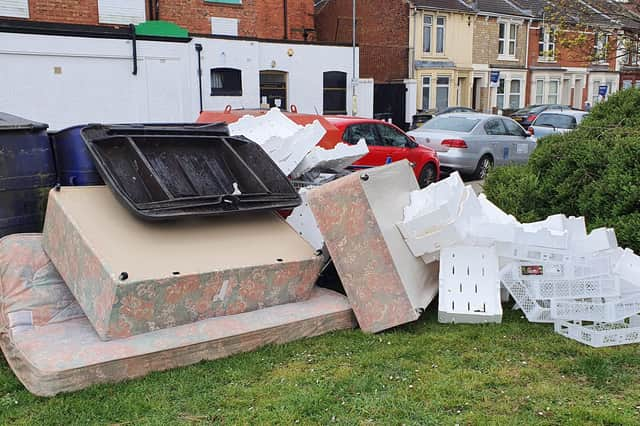Portsmouth rubbish and recycling: University students recruited by city council to boost rates and tackle 'problem spots'


A new partnership has been launched with the University of Portsmouth in a bid to tackle rubbish ‘problem spots’ in Southsea.
Councillor Dave Ashmore, the cabinet member for environment, said a ‘minority’ of students were not correctly disposing of their rubbish.
Advertisement
Hide AdAdvertisement
Hide Ad‘Students come to Portsmouth from all over,’ he said. ‘Without a national recycling standard, students may be used to different recycling rules and we need to educate them on the things that can be recycled in Portsmouth.
‘For the minority of students who do not properly dispose of their rubbish, that ranges from not recycling to fly-tipping excess waste, we have targeted plans to change behaviours.’
The partnership has seen students recruited as volunteers to help educate their peers.
Home visits are also planned while CCTV has been installed by the council in Bradford Road, which it said was a 'fly-tipping hotspot'.
Advertisement
Hide AdAdvertisement
Hide AdIan McCormack, the University of Portsmouth's energy and environmental manager, said the university was ‘keen to lend its weight’ to the council.
‘We have developed the project to train students to help solve waste issues in the area where students typically live,’ he said. ‘By having them volunteer as champions in the community, educating those who don’t dispose of their rubbish properly on the right way to do things, providing easier ways to dispose of unwanted items and by taking enforcement action where necessary will, we hope, improve the situation.’
